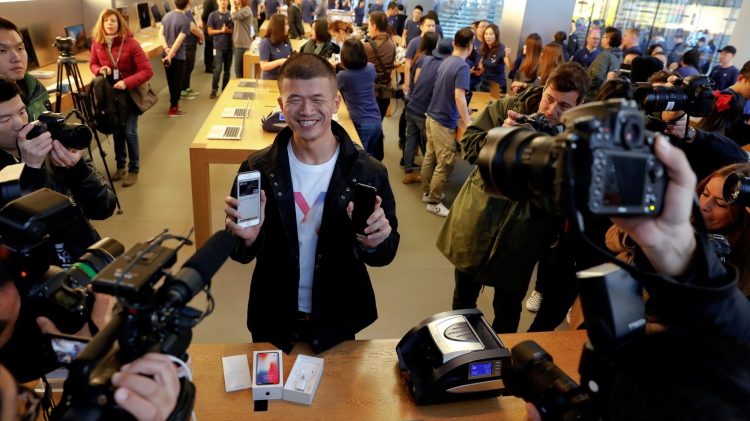Facing the imminent imposition of 25% United States tariffs on virtually all of its Chinese-manufactured products, Apple is publicly urging the U.S. government “not to proceed with these tariffs,” which it claims will cut its contributions to the economy and help foreign rivals. The request was disclosed today (via CNBC) in a letter sent on Monday to U.S. Trade Representative Robert Lighthizer, only part of which is being publicly disclosed due to business confidentiality concerns.
In the public version of the letter, Apple notes that the 25% tariffs “cover all of Apple’s major products, including iPhone, iPad, Mac, AirPods, and AppleTV,” plus their accessories and the parts used to repair them. Reaffirming its position as the United States’ largest federal corporate taxpayer and a multi-billion-dollar local taxpayer, Apple mentions its prior five-year, $350 billion commitment to investments in the U.S., and takes credit for creating 2 million U.S. jobs either directly or indirectly.
Without providing details, Apple claims that the tariffs would “result in a reduction of Apple’s U.S. economic contribution,” and “tilt the playing field in favor of our global competitors,” which don’t have a significant U.S. presence and wouldn’t be nearly as impacted by tariffs. Supporting information for the latter claim is redacted in the public letter, and the former claim appears to be little more than a suggestion that tariffs will hurt sales, resulting in less tax revenue, and less cash for Apple to use towards investments in U.S. initiatives.
The short letter makes no explicit threat to change Apple’s business practices in the event that tariffs are imposed, so it’s unclear whether the company would actually kill or delay U.S. projects in response. But it appears to be a certainty that the already high prices of Apple’s products will go up further in the event of tariffs, as the company names everything from the “major” devices above to its iPod touch, HomePod, Beats headphones, and keyboards as subject to the Made in China manufacturing duties.
June 5th: The AI Audit in NYC
Join us next week in NYC to engage with top executive leaders, delving into strategies for auditing AI models to ensure fairness, optimal performance, and ethical compliance across diverse organizations. Secure your attendance for this exclusive invite-only event.
So far, Apple’s emergency mitigations appear to be exclusively outside the United States. It is reportedly mulling the move of up to 30% of its manufacturing capacity out of China to Vietnam, India, and other countries in a response to the ongoing U.S.-China trade tensions, regardless of what happens with the tariffs. Top manufacturer Foxconn and other major assemblers have already started building plants outside China to handle Apple’s U.S. demand. The U.S. and Chinese presidents are expected to meet in Japan next month to discuss the trade issues, following repeated threats by the U.S. to move forward with the tariffs.

